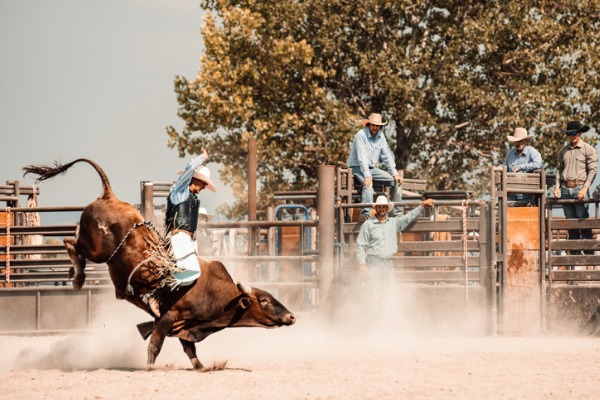Your vote counts: FTSE 100 star stock is guaranteed a rough ride
25th June 2021 10:02
by Graeme Evans from interactive investor
Two blue-chips hold AGMs in the days ahead. One of them faces a big protest vote against excessive director pay during lockdown.

A record of delivering for shareholders is unlikely to spare JD Sports Fashion (LSE:JD.) as it looks set to be the next big company to face an AGM backlash over pay levels in the pandemic.
Criticism of the big bonuses paid to executive chairman Peter Cowgill means the FTSE 100 index company is expected to join Whitbread (LSE:WTB) and Morrisons (LSE:MRW) in seeing significant shareholder dissent.
The group, which took government support during the pandemic, also faces questions over the gender balance on its board and Cowgill's continued dual role as chief executive and chairman.
- Shares for the future: everything you need to know
- Make a difference and use your vote this AGM season
- Open an ISA with interactive investor. Simply click here to find out how.
The meeting takes place on Thursday and is part of a busy week for AGMs, with Kingfisher (LSE:KGF), Provident Financial (LSE:PFG) and gold miner Petropavlovsk (LSE:POG) engaging with shareholders on Wednesday and Trainline (LSE:TRN) and 3i Group (LSE:III) among the others to do so the following day.
JD Sports Fashion (1 July)
The £4.3 million total bonus paid to executive chairman Peter Cowgill in a year when the retail chain received substantial government support has drawn the ire of voting advisory groups.
Glass Lewis and Institutional Shareholder Services (ISS) have recommended rejection of the company's remuneration report, even though JD paid dividends to shareholders worth £16.7 million and was one of the best performing FTSE 100 stocks over the year.
Cowgill has already defended the bonus by telling BBC's World at One programme that the majority of the award had been agreed prior to the pandemic.
When asked about the potential for shareholders to vote against, he said: "Why would you when the company has progressed, it's provided increasing levels of employment throughout? It's expanded internationally, it's created continued growth."
In 2019, shareholders backed plans by the company to pay Cowgill a special bonus in four instalments of £1.5 million in order to reflect his lack of involvement in the long-term incentive scheme. The third payment was delayed to January this year, bringing the special bonus element in this year's report to £3 million.
Cowgill, who reduced his salary by 75% for three months during the pandemic, had also been in line for an annual bonus opportunity equivalent to 200% of his salary or £1.7 million. However, the remuneration committee reduced this to 150%, or £1.3 million, to leave Cowgill with a total pay package worth £5 million for 2020/21.
Despite the reduction, ISS said the bonus payment at a time when JD benefited from the UK government's furlough scheme was not considered to be in line with good practice.
JD used the scheme to support jobs and maintains it is different to Primark owner Associated British Foods and ASOS, both of whom have volunteered to repay the money.
- ii view: JD Sports hits record high amid profit optimism
- This event is a big step forward for shareholder democracy
- Watch our latest market comment and fund interviews. Just subscribe to the ii YouTube channel here
The non-binding pay report vote is one of several areas of contention for shareholders to consider, with ISS also recommending a vote against the new three-year remuneration policy.
The scheme introduces share-based awards to the long-term incentive plan (LTIP), but executives apart from Cowgill will still receive the majority of it as cash. ISS said: “Share awards will vest five years from grant, however cash awards will vest after three years. Overall, the structure of the LTIP awards remains market-lagging and is not fully in line with UK best practice.”
ISS believes a vote against Cowgill's re-election is also justified, given that his ongoing dual role of chief executive and board chair continues to go against the UK corporate governance code.
And as chair of the nomination committee, it also believes Cowgill should be held responsible for JD missing the Hampton-Alexander target of at least 33% of board members being women.
A further vote is recommended against the re-election of independent non-executive director Andrew Leslie. This reflects the significant levels of dissent from shareholders in the seven years since he became chair of the remuneration committee, including 30% of AGM votes going against the company in a protest at the all-cash element of JD's pay scheme.
Kingfisher (30 June)

The B&Q owner's annual report reveals the company incurred £580,000 of costs bringing its new chief executive to the UK and helping the outgoing boss return to France.
Thierry Garnier's total pay package of £1.65 million for the 2020/21 year included £260,900 to enable his relocation from China, where he was working for French retailer Carrefour.
Garnier, who has overseen an upturn in the company's fortunes since joining Kingfisher in September 2019, was entitled to support worth up to 50% of his £800,000 salary.
Kingfisher's annual report also discloses that it paid £319,698 inclusive of taxes to Garnier's predecessor Veronique Laury to support her repatriation to France after her five-year stint at the helm ended in 2019. The allowance was approved by shareholders when they voted on last year's remuneration policy.
Garnier's pay in 2021/21 included an annual cash bonus of £510,700 after a strong financial performance meant executive directors achieved 79.8% of the scheme's maximum opportunity. There was no payment the previous year as shareholders received no final dividend.
The remuneration committee reviewed the outturn in light of Covid-19 and decided it was appropriate given the strong performance during the year and increase in shareholder value.
While the company saw considerable benefit from stores staying open during lockdowns, it also returned government furlough payments and business rates relief in the UK.
Voting advisory groups Glass Lewis and Institutional Shareholder Services have no objections to the remuneration report or any other resolutions at the AGM. Shareholders are encouraged to follow proceedings via a live videocast, which will allow them to ask questions in real time.
Trainline (1 July)
The impact of Covid-19 is reflected in the ticketing app's annual report, which shows no annual bonus or share-based awards to directors including new CEO Jody Ford.
Ford, who took charge in March after stepping up from chief operating officer, was paid £239,000 for the year to February 28 and predecessor Clare Gilmartin got £588,000.
As a voluntary leaver, she did not receive any severance payment or pay in lieu of notice but was eligible for an annual bonus. None was paid, however, after revenues slumped 74% to £67 million and the company recorded an adjusted loss per share of 10.8p.
Trainline said it intends to make long-term incentive plan (LTIP) awards of 250% of salary for the current financial year, with the performance measures continuing to be earnings per share and total shareholder return versus the wider FTSE 250 index.
- Insider: Trainline team think shares are a bargain
- Shares round-up: Royal Mail and Trainline head opposite ways
Voting advisory group Glass Lewis has no concerns about the remuneration report but said shareholders should be mindful of the potential for “windfall gains” from the vesting of the 2022 LTIP should the share price materially increase over the period.
Glass Lewis noted reassurances from the company on the matter but said it would still closely monitor the alignment of any vesting with the shareholder and employee experience.
The shares fell sharply in the pandemic and their recovery has been dented by the government's disclosure that it intends to start a rival Great British Railways ticketing app.
These articles are provided for information purposes only. Occasionally, an opinion about whether to buy or sell a specific investment may be provided by third parties. The content is not intended to be a personal recommendation to buy or sell any financial instrument or product, or to adopt any investment strategy as it is not provided based on an assessment of your investing knowledge and experience, your financial situation or your investment objectives. The value of your investments, and the income derived from them, may go down as well as up. You may not get back all the money that you invest. The investments referred to in this article may not be suitable for all investors, and if in doubt, an investor should seek advice from a qualified investment adviser.
Full performance can be found on the company or index summary page on the interactive investor website. Simply click on the company's or index name highlighted in the article.